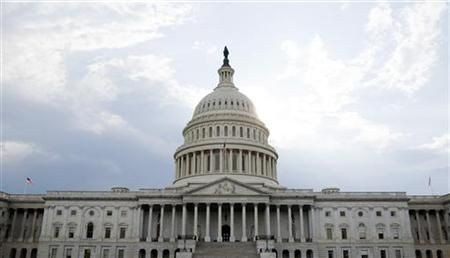Competing Fiscal Plans Blocked in Deadlocked Senate

Senate Republicans and Democrats rejected each other's economic stimulus bills Thursday, underscoring their inability to craft a bipartisan solution on job creation before next year's elections.
All 47 Senate Republicans, joined by two of President Barack Obama's fellow Democrats and one independent, stopped a piece of Obama's popular $447 billion economic stimulus plan.
The $35 billion proposal would increase taxes on millionaires to create or protect 400,000 jobs for teachers, firefighters, police officers and other first responders.
On a vote of 50-50, backers fell 10 short of the needed 60 in the 100-member chamber to clear a Republican-led procedural roadblock.
Democrats fired back by blocking a Republican bid to repeal a 3 percent withholding tax on business set to take effect on Jan. 1, 2013.
The 57-43 vote also fell short of the needed 60 to stop a Democratic-led procedural roadblock. Ten Democrats crossed party lines to vote for it.
Democrats control the Senate, 53-47.
Democrats and Republicans accused each other of jockeying for political position in advance of the 2012 presidential and congressional elections.
The American people want us to do something about the jobs crisis, said Senate Republican leader Mitch McConnell of Kentucky. What Republicans have been saying is that raising taxes on business owners isn't the way to do it.
Freshman Democratic Senator Joe Manchin, facing a tough re-election race in West Virginia, pleaded for bipartisanship and fiscal responsibility.
For the sake of our nation's economic future, we must work together -- Democrats and Republicans -- and try to find common-sense solutions that protects and creates jobs, but does so without adding to our growing deficits and debt, Manchin said.
(Reporting by Thomas Ferraro; Editing by Peter Cooney)
© Copyright Thomson Reuters {{Year}}. All rights reserved.





















